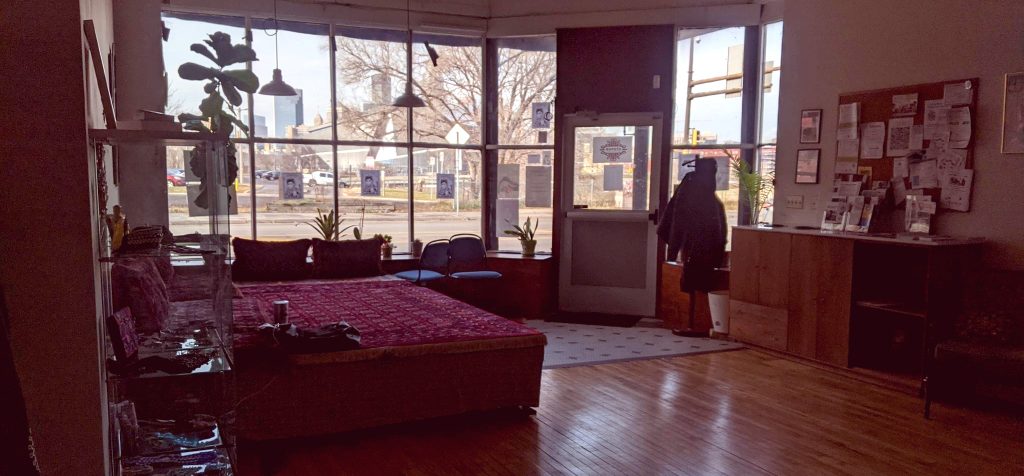Family Assisters Reflect on Challenges and Successes for Afghan Arrivals

Two years on, new community members have made “enormous strides” but there is still
a long way to go.
When Family Assisters at Afghan Cultural Society reflect on their work over the past two years, it’s clear that the community has come a long way: “When I first started, the most pressing need was healthcare. People who had been waiting in refugee camps, sometimes for months, often had urgent medical concerns by the time they arrived in the US”. At the same time, “…People had no idea how to utilize the healthcare system here. I was scheduling doctors’ appointments, arranging transportation, and coordinating with interpreters…” team lead Sara Quraishi remembers. “At this point, people have greater awareness of how the system works and what they need to navigate it, more people are making an income, driving, and making a lot of progress… I remember many clients who felt they would never be able to drive a car in the U.S. are driving to work every day and lead relatively normal day to day lives.”
Still, challenges persist. Barriers to accessing affordable housing, healthcare, education and employment are numerous. New community members face a steep learning curve: navigating the immigration process, rental contracts, health insurance plans, and job applications, all while mastering a new language and fulfilling familial and communal obligations. “It’s still too early for families to be resettled properly.” says Naser Mohammadi “Language barriers, work placement, and financial needs are still prevalent. It’s too soon for a lot of these families to be cut off from government assistance. I still often work with new arrivals to help them apply for county benefits, healthcare access, and other immediate needs. Navigating systems here are much more complex in the US than they typically
are in Afghanistan.” Assisters are frequently called upon to help new arrivals sort through mail, review important forms and documents, or connect people with medical and legal interpreters. One of the biggest challenges of 2023 was working with refugees enrolled in Minnesota’s expanded medical assistance program when it returned to pre-COVID 19 eligibility requirements. Many families suddenly found themselves needing to stretch limited financial resources even further as their coverage changed. If they lost coverage, they had to contend with an insurance system even people who grew up in the U.S. experience as confusing and costly to navigate. “Many [refugees] have been removed from government assistance after finding regular work” notes Jawad Hotak. This can place significant financial hardship on new arrivals because “Oftentimes they are financially responsible for their families back home which doesn’t factor into eligibility for assistance programs.” Rental assistance is another ongoing need. An initial infusion of cash for housing expenses has dwindled to one or two existing programs with strict eligibility requirements. Assisters often work with clients on concerns related to finding suitable housing and educate clients on their rights and responsibilities as renters, for example: “We have a client who was renting a house where the heater was not working and the building was infested with mice.” Kubra Bashari recalls. The client complained to the property manager to no avail, so they brought the issue to a Family Assister. “…We helped them make a case to move out and find a more suitable rental.”
In addition to healthcare and housing, the implementation of the Driver’s Licenses for All bill this year made driving certification a high priority for Afghan arrivals, with Assisters often accompanying prospective new drivers two or three cities over to take their driving tests. Bashari has helped more than 250 new arrivals sign up for behind the wheel classes this
year. “I connect our clients to online driving courses in Dari and Pashto and help them make appointments for their driving tests. I always enjoy clients calling me back after their road test to tell me they passed!”
Humanitarian parolees and asylum seekers continue to face uncertainty this year as
USCIS processed thousands of re-parole applications over a series of months (a process which, as of this writing, is not complete.) The complicated application process and long wait times left many feeling worried about their future. Assisters worked alongside legal aid organizations like The Advocates for Human Rights to ensure Afghan arrivals were educated with regards to the re-parole process and had appropriate legal counsel. Today, many SIV (Special Immigrant Visa) holders and Humanitarian parolees are seeking permanent status, however the high cost of immigration lawyers and the extremely limited availability of legal aid organizations means thousands have to wait months before they can even start the application process. This condition is a source of considerable anxiety for many, especially those for whom safe return to Afghanistan is not an option because of persecution
they could face due to their political views, vocational affiliations, or ethnic background.
Members of the Assister team emphasized a need to allocate more resources towards low cost immigration lawyers and accessible legal counsel for Afghans and other humanitarian parolees.
With the help of ACS and its community partners, new arrivals have made “enormous strides” in only two years. The individualized planning and wraparound support offered by Family Assisters has been an essential component to their success. Every week, Assisters check in with clients to ensure they have the support they need to achieve their goals. In fact, members of the Assister team and their clients are often learning and making progress together. “I became the team lead for Assisters this year! I’ve learned so much at this job. As a new refugee myself I have been learning about systems in the US alongside my peers, and I feel much more knowledgeable and able to help than when I started.” says Quraishi. ACS acts as a community hub, allowing Afghans to drop in with questions or problems they need to solve or to gather and discuss shared experiences. Mohammadi feels similarly: “This office is like a welcome center…We organize activities and programs for people in all stages of life, whether you are married, single, young or old, a man, woman, or child.”
